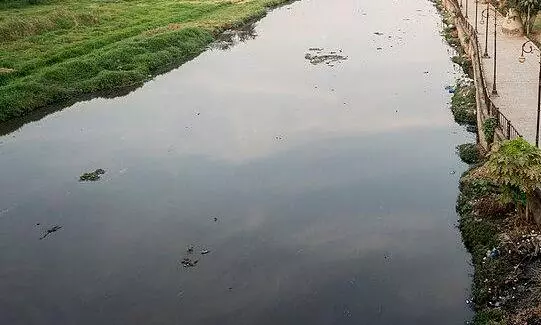Musi River Revival Gets Budget Boost
“We are developing a master plan to transform Hyderabad into a global city of international standards... As a part of this vision, we have launched the Musi Riverfront Development Project to make Hyderabad a pollution-free city,” announced Deputy CM and finance minister Mallu Bhatti Vikramarka while presenting the Budget on Wednesday.

Hyderabad: The government has laid out an ambitious plan to alter Hyderabad’s relationship with the Musi River. A budgetary push has placed the river at the centre of an urban renewal effort that pairs ecological restoration with infrastructure expansion, with the government presenting these measures as part of a broader strategy to position Hyderabad as a global city.
“We are developing a master plan to transform Hyderabad into a global city of international standards... As a part of this vision, we have launched the Musi Riverfront Development Project to make Hyderabad a pollution-free city,” announced Deputy CM and finance minister Mallu Bhatti Vikramarka while presenting the Budget on Wednesday.
While the promise is important, the reality of Musi’s condition raises concern about whether these interventions will yield more than just announcements.
New projects have begun on improving water quality and flood management. The Water Board is constructing four sewage treatment plants (STP), each positioned near Osmansagar and Himayatsagar, with a combined capacity of 20 million litres per day.
These facilities, according to the finance minister, will enable efficient wastewater treatment and improve water quality. The plan also incorporates a strategy to replenish both reservoirs with water from the Godavari. The government states this will restore the ecological balance of these reservoirs while securing a sustainable water supply for the future.
“STPs require considerable capital and maintenance costs. It would help to know whether they are upstream or downstream of the river before assessing their impact. Some of the earlier recommendations from the French-led ‘Water and Metropolitanisation’ workshop had suggested natural, cost-effective solutions, but they don’t seem to have been included here,” said environmentalist Subba Rao.
The workshop, organised last year with support from the French Embassy and the Telangana government, explored ideas such as sponge city concepts and decentralised water management strategies, which some experts believe could complement traditional infrastructure.
Another component of the Budget involves an overhaul of the Bunadigani Canal under the Musi project. The government has approved `266.65 crore for its revitalisation, including upgrades to the Pillayipally and Dharmareddypally canals.
The allocation is intended to modernise the water distribution network in Yadadri district which the finance minister argues will become an agricultural lifeline and boost the sector’s productivity. Referring to this Subba Rao notes, “The core problem is water quality and if we are creating distribution mechanisms, it will still distribute polluted water.”
To accelerate project implementation, the government has placed the Musi Project under its newly launched SPEED framework. This initiative has been described as a mechanism for fast-tracking 19 critical projects, including metro rail expansion and regional ring road construction, through real-time monitoring and resource management.
“Every year, funds are allocated for the Musi, but the river remains the same,” said activist Syed Bilal, adding, “There needs to be more involvement from communities living along its banks if long-term progress is to be made.”

